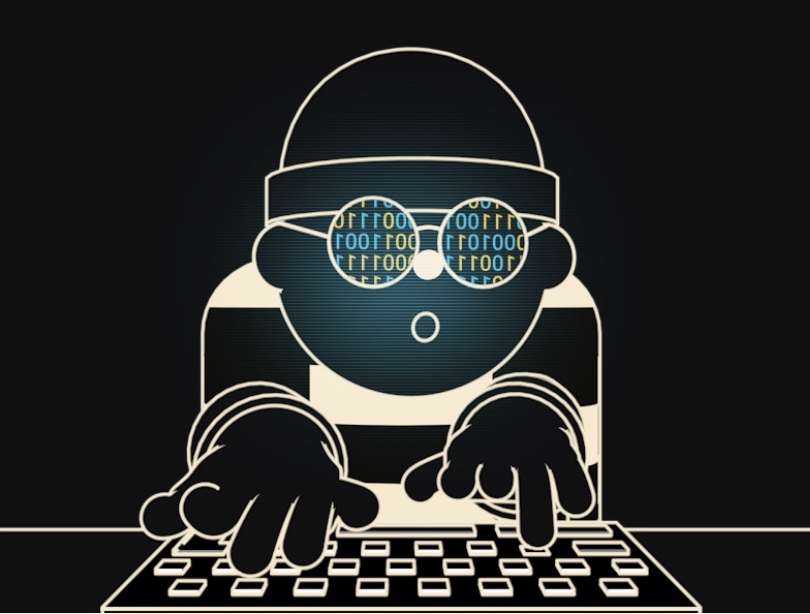
The digital world which we witness in this current era is very different from the face-to-face world. The intertwined environment that involves interplay between software, services, and people could be roughly defined as what cyberspace is. The only differentiation that all of us could think of when it comes to a crime that is considered to be traditional and a crime that is considered to be cyber-based is nothing but the involvement of computers in the latter. All the technologies and safeguards or procedures associated with the same, whose ultimate objective is to prevent such illegal admittance and attacks whichever is carried forward through the internet in the modern era, are what we refer to as Cyber Security.
Now coming to Cyber Law, it is not a narrow term but instead is very broad in terms of meaning. Its interpretation is nothing but a set of rules or regulations (laws) which govern cyberspace in India. In the current era, computers are often seen to be used as a goal or means through which crimes are committed largely which can be simply put together in an umbrella of cybercrimes. Thus in India, we have cyber law that deals with data protection, cybercrimes at large, and so on. Thus, the prime focus of the paper is not only to enlighten students or academicians but also the general public regarding the general overview of what cyberspace is, what are the laws that we have in relation to cyberspace in a nutshell, and what is the future of cyberspace in India.
Cyberspace and Cybercrime in a Nutshell
A platform where the entities and objects, that are present in the worldwide network have an interplay amongst themselves which is not just revolving around the concept of networks but also includes the data, could be referred to as cyberspace shortly. Coming to the features, cyberspace knows no limits/boundaries, which means there are no limitations as to when and how interactions could take place.
In this growing world of the modern era, Cyberspace is not only important but also very essential. Some of the features include sensations getting diminished, perceptions/views getting altered, etc. Cybercrime has a lot of definitions and explanations provided the usage of the internet is growing worldwide rapidly each day. Cybercrimes such as spamming through emails, causing the virus to spread through computers, hacking, etc. are some crimes which all of us come across every day.
Cybersecurity – Right To Privacy
And lastly, when it comes to cybersecurity, the issue of uncertified surveillance has gained much attention in the current era. Privacy is a strong term when we deal with cyberspace, cybercrime and cybersecurity. When thinking of privacy, it is significant to note that under both the Universal declaration of human rights and the International convention of civil and political rights, it is recognized and given significance as a fundamental right. As far as India is concerned, Right to privacy, that is intrinsic to all our lives, was declared as a fundamental right under Article 21 of the Indian Constitution. It came as a thunderous victory through Justice K.S.Puttaswamy (Retd) vs Union Of India case.
Jurisprudential facets of Cyber Law
When thinking of jurisprudence, the first thing that comes to our mind would be the background cases of significance and the theory behind it. The theory here refers to the legal theory. So, when thinking of how case laws would help in tracing the jurisprudence, we should not forget that whenever the words or language or a particular act is not understandable, as it seems to be puzzling, it is significant to look at different interpretations given by the courts in various cases to trace the object of the law/act. To put it simply, law governing cyberspace which is viewed as an intangible platform could be called cyberlaw. What encompass cyberlaw today are not just cyber crimes but also intellectual property, data privacy, data protection, electronic and digital signatures, etc.
Legal Framework – CyberLaw
With the Information Technology Act, 2000 (primary legislation governing internet, computers, etc), and Information technology rules coming into force provisions governing cybercrime came into the spotlight. The primary object of the act was to give lawful recognition to electronic commerce in the country. India is a country with a beautiful ever-living and organic document called the Constitution. We also have several important laws such as the Indian Penal Code, The Code of Criminal Procedure, Indian Evidence Act, Company Act, etc. But when it comes to interpretation, it gets slightly difficult to go ahead in view of the emerging problems in cyberspace because there is no obvious or explicit lawful validity or any punishment with regard to activities that take place in Cyberspace.
Provisions Highlighted
In that light, various provisions of the Information Technology act, 2000 and the rules could be helpful. In order to accomplish a correct balance between the data controllers and the privacy of the individual concerned, the data protection and privacy laws are really helpful (they help a lot in tackling issues challenging/addressing the privacy of the individual). When we look into laws addressing cybercrime, we also come across the parallel provisions which have similar ingredients both under the Indian penal code and the Information Technology Act.

Some of the provisions of the Information Technology act dealing with cybercrime such as data theft, hacking, etc, contained in section 43 which addresses any damage caused to any computer system or computer and prescribes punishment and compensation for the same, Section 66A deal with the penalty for sending any information that is considered to be unspeakably offensive, etc. But it is significant to remember the famous case law Shreya Singhal vs Union of India (wherein the constitutional validity of section 66A has been challenged) in which the Supreme Court abrogated the section 66A of Information Technology Act 2000. Provisions of the Indian Penal Code include Sections 378, 424, 425, etc.
Conclusion
One of the most rapidly and endlessly changing platforms or dimensions today is cyberspace due to its complexity and its intangible nature. There were great initiatives from the side of the government as well the central bank of India like the most famous national cybersecurity coordinator that all of us came through in the past. As far as viewing the future of cyberspace in India is concerned, what I see coming would be the rapid increase in multiplex crypto algorithms with prolonged values with inexpensive computer access readily accessible and available. What is considered to be a matter of joy and supremacy is the cooperation and an explicit regulatory regime in the field of cyberspace.
Editor’s Note
The author in this article talks about the future of cyberspace in India. The author discusses the right to privacy with respect to cyber security and also analyses the jurisprudential facets of cyber law and the current existing legal framework of cyber law in India. The author concludes that the field of cyberspace will change dramatically over the coming years with an increase in its complexity and nature.